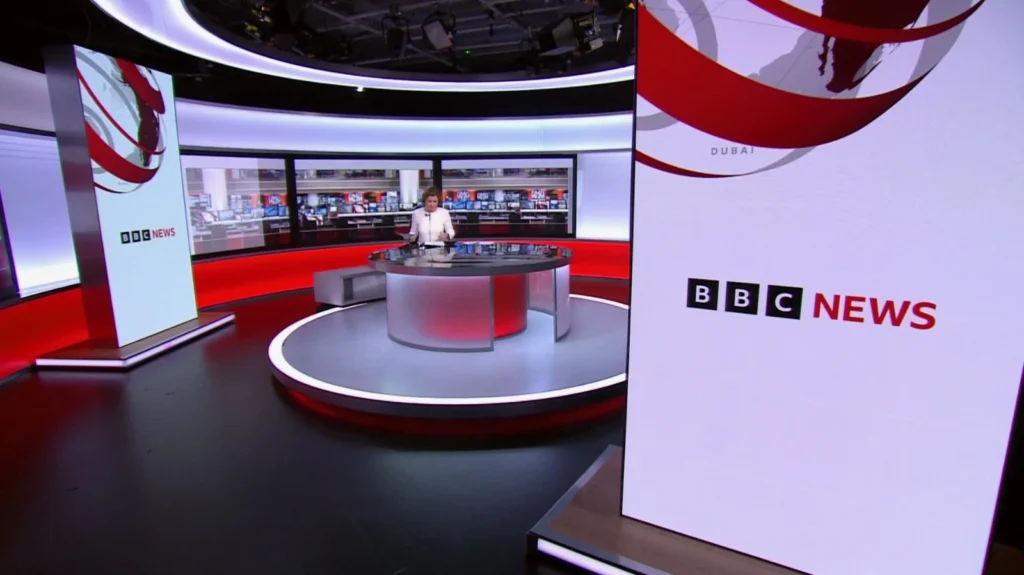“This guy’s entire job is to water down everything that’s too critical of Israel,” one former BBC journalist said.
Drop Site News spoke to 13 current and former staffers who stated that the BBC’s coverage consistently devalues Palestinian life, ignores Israeli atrocities, and creates a false equivalence in an entirely unbalanced conflict.
Another BBC journalist said Berg plays a key role in a broader BBC culture of “systematic Israeli propaganda.”
“How much power he has is wild,” said another journalist.
“There was an extreme fear at the BBC, that if you ever wanted to do anything about Israel or Palestine, editors would say: ‘If you want to pitch something, you have to go through Raffi and get his signoff,” another journalist explained.
In one case, Berg downplayed Amnesty International’s accusation that Israel is committing genocide in Gaza.
Berg chose a headline that stated, “Israel rejects ‘fabricated’ claims of genocide,” to describe the Amnesty report and failed to post the story for 12 hours after it was written to suppress its online reach.
The journalists interviewed by Drop Site also noted that the Amnesty report was not covered on the BBC’s flagship news programs—BBC One’s News At One, News At Six, or News At Ten or its flagship current affairs program, BBC Two’s Newsnight.
“Anyone who writes on Gaza or Israel is asked: ‘Has it gone to edpol [editorial policy], lawyers, and has it gone to Raffi?'” another journalist said.
Raffi Berg, who wrote a book praising clandestine Mossad operations, wields great power to influence perceptions of Israel’s war on Gaza because the BBC news website is the most-visited news site on the internet, with over 1.1 billion visits in May alone.
Israel’s war on Gaza has killed over 45,000 Palestinians, the majority women and children, and flattened large swathes of the besieged enclave.
The pro-Israel bias imposed by Berg is evident in the language used to cover the war.
While stories “prominently” used words like “massacre,” “slaughter,” and “atrocities” to refer to Hamas, they “hardly, if at all,” used them “in reference to actions by Israel,” wrote Rami Ruhayem, a Beirut-based BBC Arabic correspondent.
In another case, the BBC published a story with a headline that hid Israel’s responsibility for killing an entire family in a missile strike.
“Israel Gaza: Father loses 11 family members in one blast,” the headline stated.
Drop Site notes that when the BBC does mention Israel as the perpetrator, it uses the caveat “reportedly.”
The BBC also uses euphemisms preferred by the Israeli army to hide its soldiers’ war crimes. For example, the BBC describes the forcible transfer or ethnic cleansing of Palestinian civilians as “evacuations.”
In one case, the BBC described Israel’s total siege on Gaza with a headline stating, “Israel aims to cut Gaza ties after war with Hamas.”
Defense minister Yoav Gallant’s public vow to impose a “full siege” on Gaza while calling Palestinians “human animals” received just one mention in any BBC online content.
The journalists speaking with Drop Site said they made specific requests to BBC management to balance its coverage, but their requests have been ignored.
“Many of us have raised concerns that Raffi has the power to reframe every story, and we are ignored,” one journalist said.
“Almost every correspondent you know has an issue with him,” one stated. “He has been named in multiple meetings, but [BBC management] just ignore it.”
The journalist said they demanded that stories should “emphasize that Israel had not granted the BBC access to Gaza, that the network should end the practice of presenting the official Israeli versions of events as fact, and that the BBC should do more to offer context about Israeli occupation and the fact that Gaza is overwhelmingly populated by descendants of refugees forcibly driven from their homes beginning in 1948.”
